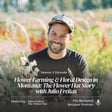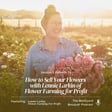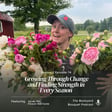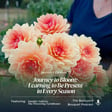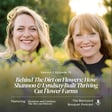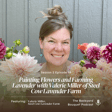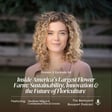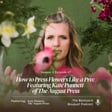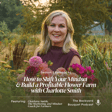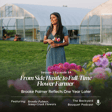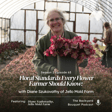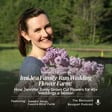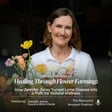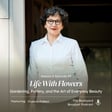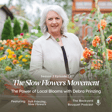
Ep.29: Meg McGuire of Red Daisy Farm: From Flower Farming to On-Farm Stays
Have you ever wondered what it takes to run a successful flower farm and create a unique on-farm experience for visitors? Today we are joined by Meg McGuire from Red Daisy Farm in Brighton, Colorado. Meg is here to share the inspiring story of how her family turned their property into a vibrant community hub, offering everything from wholesale flowers to overnight farm stays.
Meg's journey began with a wedding request from her cousin, sparking her love for flower farming. Over the past 11 years, she has navigated the challenges of crop failures, physical demands, and balancing work and personal life. Meg's dedication to her farm and her family's involvement in the business exemplifies the importance of succession planning and passing down the farm's legacy.
At Red Daisy Farm, guests can enjoy DIY flower buckets, floral workshops, and unique accommodations like converted silos with stunning mountain views. Meg's commitment to building relationships with florists and providing a memorable experience for visitors showcases the hard work and passion that goes into running a flower farm. Her story serves as an inspiration for those looking to create a thriving agricultural business while maintaining a balance between work and personal life.
In This Episode You’ll Hear About:
- 00:00:55 - Introduction to Red Daisy Farm
- 00:05:31 - Expanding into Farm Stays
- 00:07:18 - Family Involvement in the Farm
- 00:19:09 - Irrigation and Water Sources
- 00:22:00 - Creation of the Natural Swimming Pond
- 00:15:25 - Challenges with Hail and Crop Loss
- 00:31:01 - Succession Planning for the Farm
- 00:35:25 - Flower Sales to Florists
- 00:36:50 - DIY Flower Buckets and CSA
- 00:43:21 - Flower Workshops and Events
- 00:44:26 - Importance of Taking Time Off
Shownotes: https://thefloweringfarmhouse.com/2024/07/23/ep-29-red-daisy-flower-farm/
Learn More About Red Daisy Farm:
- Red Daisy Farm: https://www.reddaisyfarm.com/
- Instagram: www.instagram.com/reddaisyfarm/
- Facebook: www.facebook.com/reddaisyfarm1
Links To Mentions From Interview:
- Follow The Blooms: https://www.youtube.com/@flowers.for.people/
- Zeta Water Management Systems: https://zetarod.com/
- Icy Breeze Car Cooler: https://www.icybreeze.com/
Sign up for our newsletter: https://thefloweringfarmhouse.myflodesk.com/nlw4wua8s3
***Rate, Review, & Follow The Backyard Bouquet***
If you enjoyed this episode, will you please consider leaving the podcast a review? Your review helps make the podcast more discoverable to others and allows me to continue creating more episodes. I'd love to know what you enjoyed most about the episode.
New episodes every Tuesday to help keep your garden blooming!
